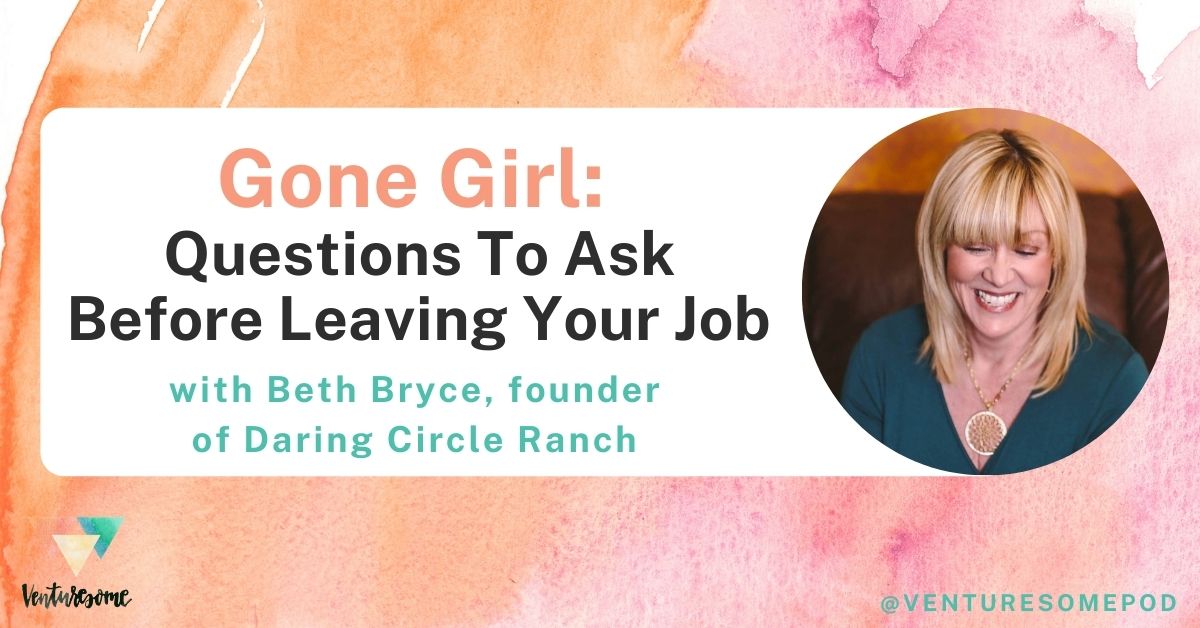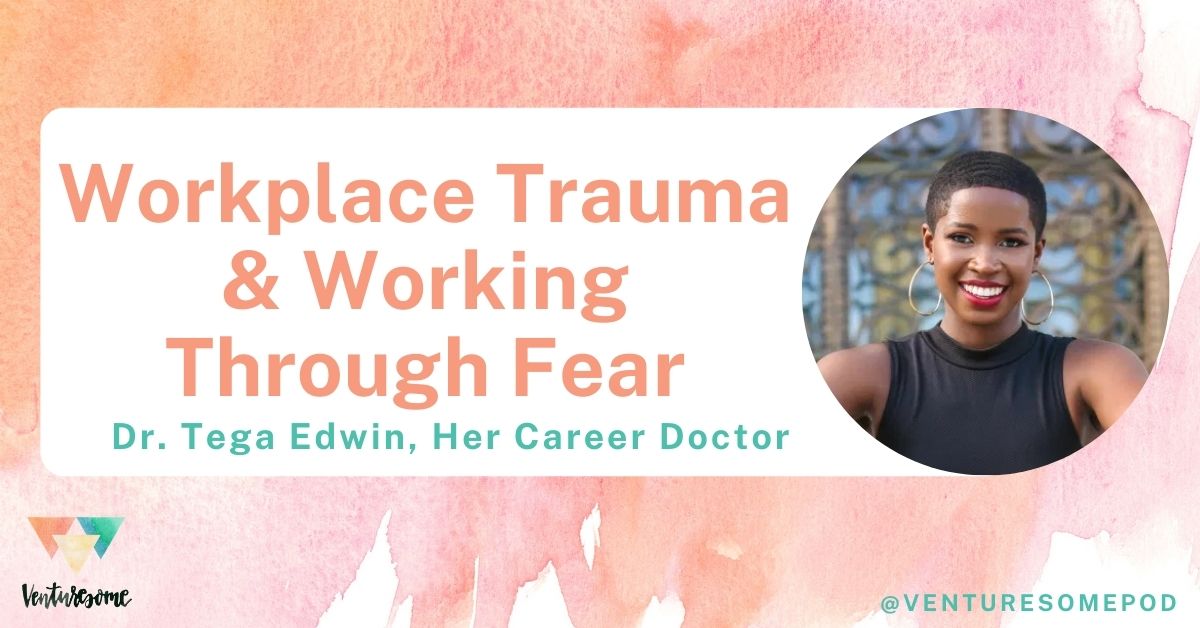
Workplace Trauma & Working Through Fear with Dr. Tega Edwin, @HerCareerDoctor
 Dr. Tega Edwin, also known on social media as @HerCareerDoctor, helps women who are unhappy at work get clarity about who they are so they can find a satisfying, fulfilling career.
Dr. Tega Edwin, also known on social media as @HerCareerDoctor, helps women who are unhappy at work get clarity about who they are so they can find a satisfying, fulfilling career.
In our interview we talk about coping with workplace trauma and toxic stress, and working through fear. She also talks about how the collective trauma of the pandemic and the racial unrest of 2020 are affecting people emotionally, especially people of color.
The Devil You Know
Dr. Edwin often hears people say “The devil you know is better than the devil you don’t know” when it comes to work.
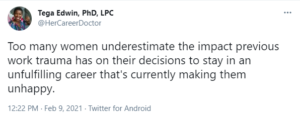
The devil you know is still a devil, she says.
I loved this phrase because so often we are paralyzed from making a change in life because we’re comfortable. And, we’re afraid that by making a change that we’ll make things worse.
Years ago, one of mine was a job. I was extremely comfortable at Central Michigan University. I had built strong relationships and was proud to work at my alma mater. However, as I began to burn out from the high turnover on our team and the always-on nature of being a social media manager, I started to consider how the pain of staying might be worse than the discomfort of taking a risk and leaving.
Three months after my realization, I had a job offer in hand that would require me to move to start a role at a private university. It was scary for a lot of reasons. I had to build trust and credibility with new people and learn the differences between public and private universities. I even had to rent an apartment while my husband stayed in our home as we prepared to sell it.
Your devil might be staying in your hometown. It might be a job that no longer fits you. It could be your boss, who isn’t ideal but you have worked with long enough to predict their needs. It could be a relationship that is no longer supportive. What are some of your devils? What are the fears that are holding you back?
Connect with Her Career Doctor
The heart of being a venturesome professional is taking risks, even when it’s hard. Dr. Edwin offers inspiring, though-provoking content on Instagram, Twitter and Facebook at @hercareerdoctor.
I’d also encourage you to check out her Fulfilling Career Guideand, if you’re seeking clarity on finding a career that fulfills you, check out her six-week small group coaching program.

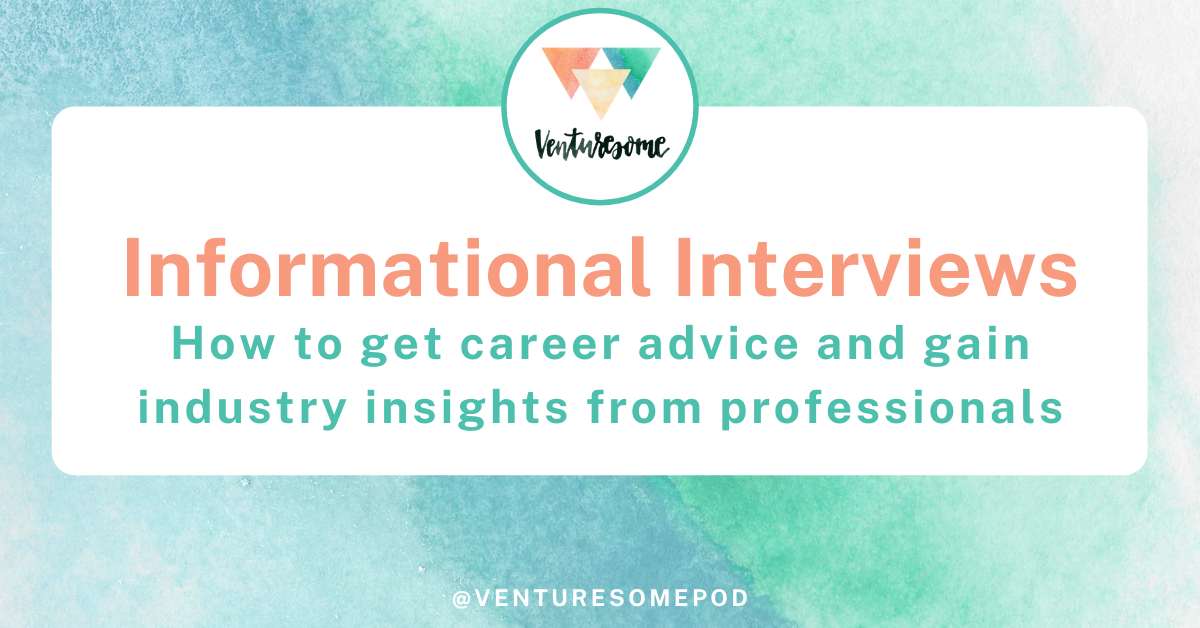

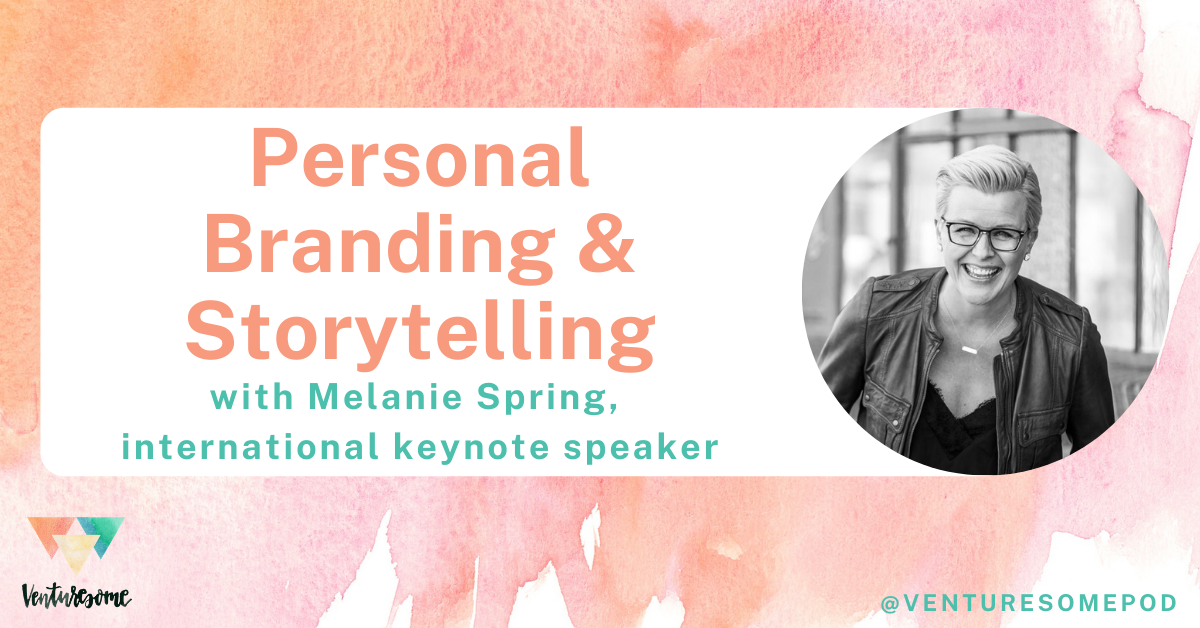
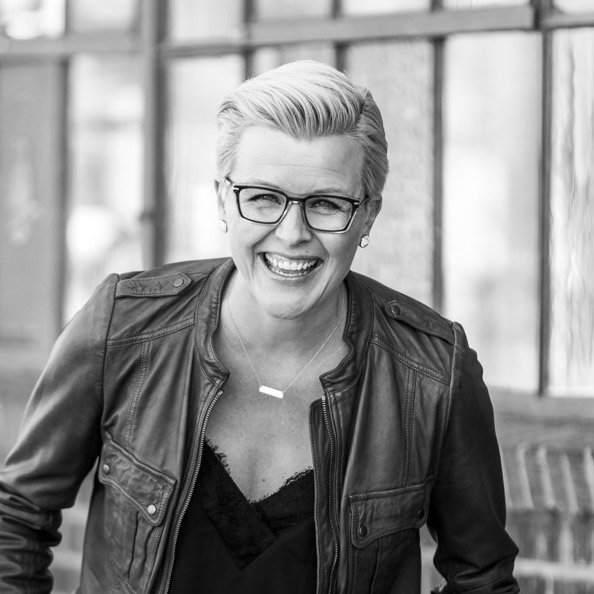 Melanie Spring
Melanie Spring 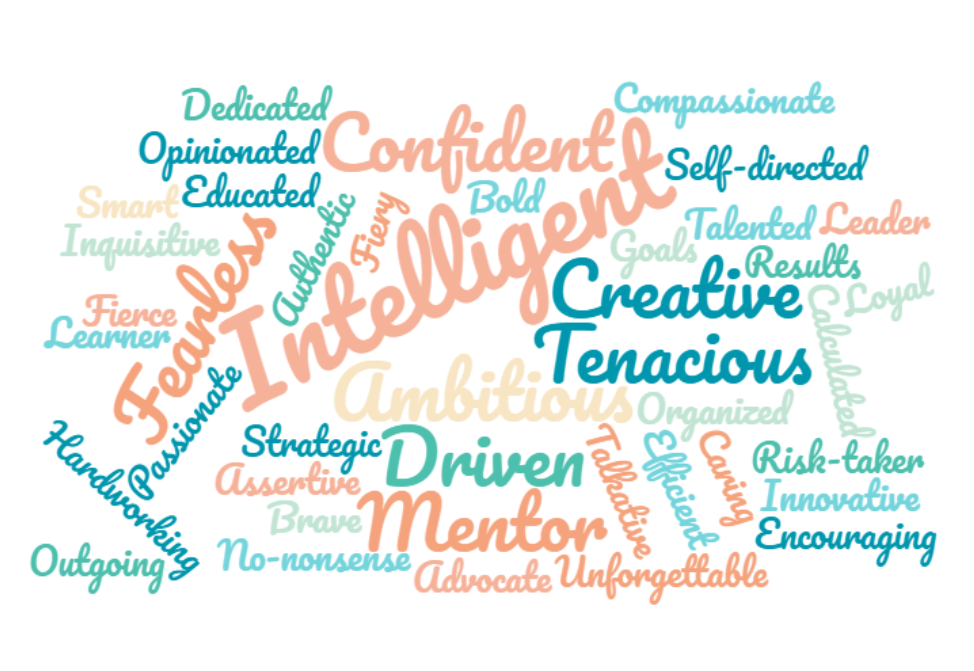
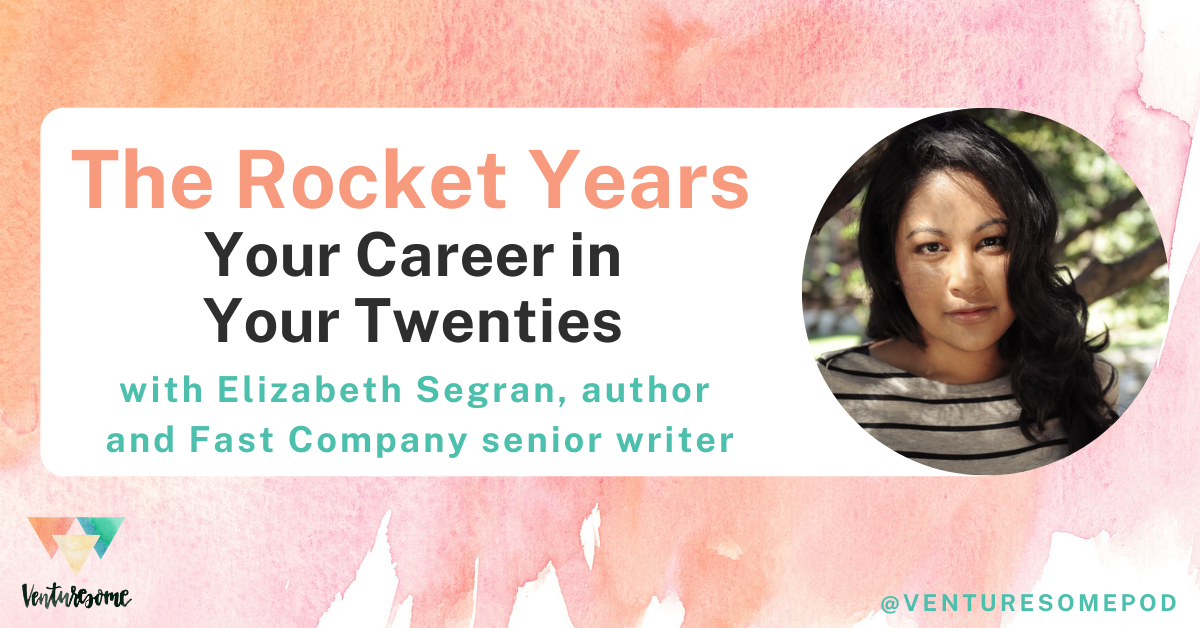
 The actions you take in your twenties — in your career, relationships, health and more — can set the trajectory for the rest of your life.
The actions you take in your twenties — in your career, relationships, health and more — can set the trajectory for the rest of your life. 